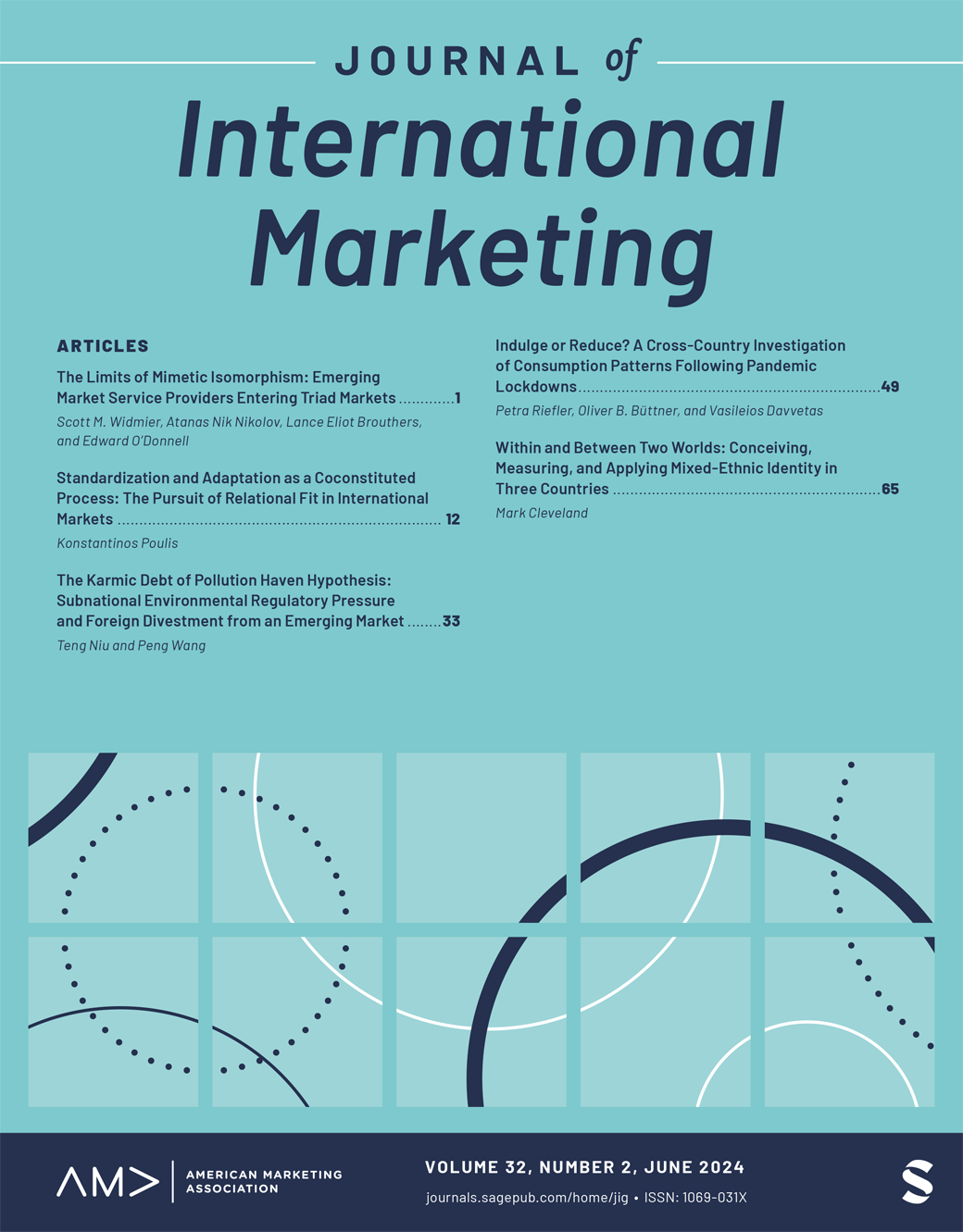EXPRESS: Coach vs. Goldlion: The Effect of Socially- versus Personally-Oriented Motives on Consumer Preference for Foreign and Domestic Masstige Brands in Emerging Markets
IF 4.9
2区 管理学
Q1 BUSINESS
引用次数: 0
Abstract
The fast-growing middle-class in emerging markets is leading luxury brands to adopt an affordable luxury (aka “masstige”) approach to reach the mass market. However, academic research in this promising area is scarce. Focusing on China, the world’s largest emerging market, this research shows a novel pattern of masstige brand consumption: Instead of preferring foreign masstige brands (e.g., Coach) all the time as what can be derived from previous international marketing literature, consumers in emerging markets prefer domestic masstige brands (e.g., Goldlion) when their personally-oriented motives are made salient. In contrast, consumers prefer foreign masstige brands when their socially-oriented motives are made salient. This stems from domestic masstige brands better manifesting self-focused intangible attributes (i.e., the actual value to please oneself), whereas foreign masstige brands are superior in other-focused intangible attributes (i.e., the symbolic value to impress others). Three studies using a multi-method approach provide converging results that support this phenomenon. The findings bring significant contributions to the literature, and offer actionable implications for managers, including positioning and price promotion strategies for masstige brands in emerging markets.Coach vs. Goldlion:社会导向与个人导向动机对新兴市场消费者对国内外大众品牌偏好的影响
新兴市场中快速增长的中产阶级正引领奢侈品牌采用平价奢侈品(又名“大众”)的方式进入大众市场。然而,在这一有前途的领域,学术研究很少。本研究以中国这个全球最大的新兴市场为研究对象,揭示了一种全新的大众品牌消费模式:新兴市场的消费者不再像以往的国际营销文献那样一直偏爱国外的大众品牌(如Coach),而是在个人动机突出的情况下更喜欢国内的大众品牌(如Goldlion)。相比之下,当消费者的社会动机明显时,他们更喜欢外国的大众品牌。这是因为国产的大众品牌更能体现以自我为中心的无形属性(即取悦自己的实际价值),而国外的大众品牌在以他人为中心的无形属性(即打动他人的象征价值)上更有优势。使用多方法方法的三项研究提供了支持这一现象的收敛结果。研究结果对文献有重大贡献,并为管理者提供可操作的启示,包括新兴市场中大众品牌的定位和价格促销策略。
本文章由计算机程序翻译,如有差异,请以英文原文为准。
求助全文
约1分钟内获得全文
求助全文
来源期刊

Journal of International Marketing
BUSINESS-
CiteScore
8.70
自引率
17.20%
发文量
28
期刊介绍:
As the globalization of markets continues at a rapid pace, business practitioners and educators alike face the challenge of staying current with the developments. Marketing managers require a source of new information and insights on international business events. International marketing educators require a forum for disseminating their thoughts and research findings. Journal of International Marketing(JIM) is an international, peer-reviewed journal dedicated to advancing international marketing practice, research, and theory. Contributions addressing any aspect of international marketing management are published each quarter.
 求助内容:
求助内容: 应助结果提醒方式:
应助结果提醒方式:


